Jordan Says Good Ties With Iran Hinge On Change In Tehran's Policies
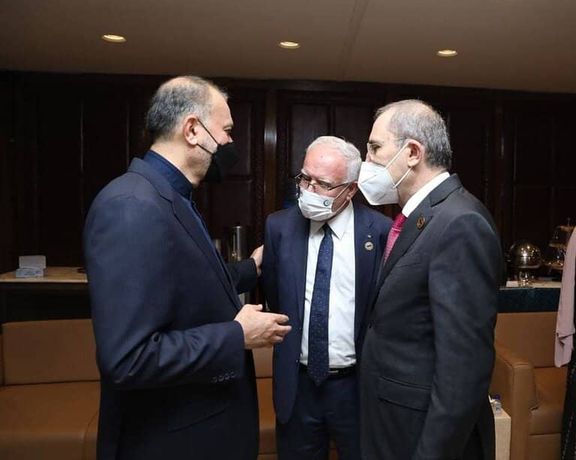
Jordan's Foreign Minister Ayman Safadi says all Arab countries want amicable relations with Iran, but that requires Tehran to change its regional policies.

Jordan's Foreign Minister Ayman Safadi says all Arab countries want amicable relations with Iran, but that requires Tehran to change its regional policies.
Addressing a webinar held by Brookings Institute's Center for Middle East Policy on Thursday, Safadi said in addition to Iran's nuclear program, "there are other issues that need to be addressed in order for us to be able to have good relations with Iran."
"All Arab countries want good, neighborly relations with Iran, and there are already so many conflicts and crises in region that they cannot afford a new one," he noted.
However, he added, "in order for that to happen, Iran needs to stop its interventionist policies in the region."
According to Safadi, "healthy relations need respect for non-intervention in other countries' affairs. Iran's policies in the region need to be addressed, and the way to achieve that is dialogue."
He referred to recent talks between Iran and Arab countries as an example of such approach, adding, "We have seen a lot of Arab countries engaging in dialog with Iran with the purpose of making sure
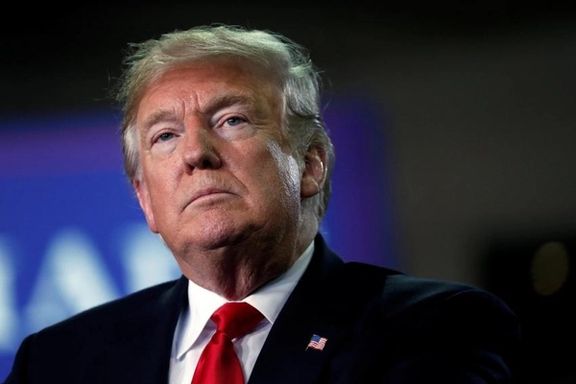
The official website of Iran’s Supreme Leader Ali Khamanei posted an animation video showing the assassination of former President Donald Trump on a golf course.
The animation shows an all-terrain vehicle with an operator on board driving through streets and a golf course and approaching a point from where its camera shows a man who looks like Trump playing golf. The operator targets the figure and a large gun on top of the vehicle aims at the target and the video ends.
At the time of this publication the website was showing “error” and not responding to page requests but the video was still there.
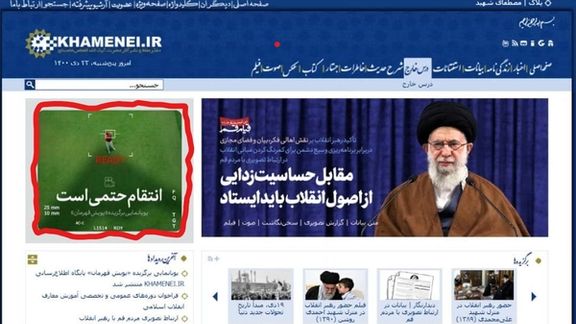
Khamenei and other top civilian and military leaders have threatened revenge for the killing of Qasem Soleimani, the Iranian operator who organized and controlled anti-Western and anti-Israeli militant groups in the Middle East. Trump ordered his killing in early 2020. He was one of Khamenei’s most trusted people.
Khamenei on January 1 lashed out at former US president Donald Trump and others for Soleimani’s killing, saying they “will pay back for their crime.”
US National Security Advisor Jake Sullivan warned Iran on Sunday against harming any Americans, after Tehran intensified calls for revenge on the second anniversary of Soleimani’s death.
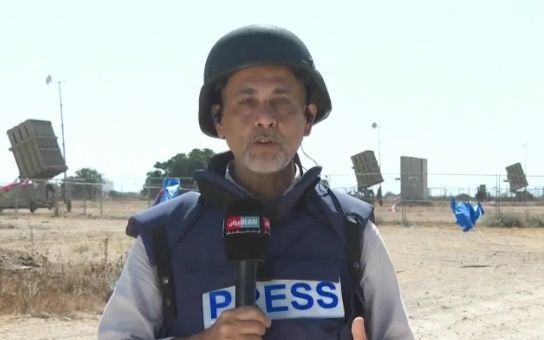
Iran International issued a statement Thursday saying that Iranian intelligence targeted its senior correspondent in Israel, in an operation uncovered by Israeli intelligence this month.
Without providing many details, the statement [Jan. 13] said that Babak Iztzhaki in Jerusalem was the target by individuals recruited by Iran's Intelligence Ministry in Israel. The statement does not elaborate on the exact nature of the threat but says that Iran’s action “as part of a continued campaign of intimidation against Iranian journalists, is most strongly condemned as yet another abhorrent attack on the freedom of the press.”
But information released by Israeli authorities show that some of the suspects approached the Iran International bureau and tried to befriend Iztzaki and gather information. Their ultimate aim is not known at this point.
Israeli domestic intelligence service Shin Bet disclosed on Wednesday[Jan. 12] that it had successfully uncovered and broken up a spy ring created by Iran’s intelligence whose members were Israeli Jewish citizens with Iranian roots.
Authorities have arrested four women and a man who were recruited by Iranian agents over the Internet and persuaded to collect sensitive information and deliver to their handlers in exchange for relatively small amounts of money.
“Through coercion and manipulation of members of the Iranian community in Israel, actions by the Iranian regime have willfully endangered the security of Babak Itzhaki, his family and other members of the Iran International bureau in Israel,” Iran International said.
Itzhaki is one of few Persian speaking Israeli reporters who keep Iranian audiences informed about current affairs in Israel and stories related to long-running tensions between the Jewish state and the Islamic Republic. But the clerical government in Tehran regards Iran International Television and other foreign-based Persian broadcasters as enemies of the regime and regularly tries to intimidate journalists working in these media outlets. Harassment of their family members in Iran by intelligence services is a routine matter.
In September 2019 Iran abducted Ruhollah Zam, a Paris-based Iranian journalist by luring him to Iraq, where intelligence agents captured him and took him across the border to Iran. He was tried behind closed doors as a spy and executed in December 2020.
“The Iranian regime has sought to infiltrate the bureau in Israel as part of its global campaign to harass, intimidate and cause harm to Iranian journalists and their families,” the statement by Iran International said, and vowed that its journalists “will continue to work in defense of freedom of expression and of the press.”
Spying by five Israeli citizens for Iran came as a shock. “With their grave actions, those involved put themselves, their families and innocent Israeli citizens at risk, as their information was transferred to Iranian intelligence, in addition to the information that was handed over about Israeli sites and American sites in Israel, which would be used for terrorist purposes,” a senior Shin Bet official said on Wednesday.
Iran International called on governments and institutions “who support freedom of expression and who are advocates of free and independent journalism, to vigorously condemn the recent actions of the Iranian regime.”
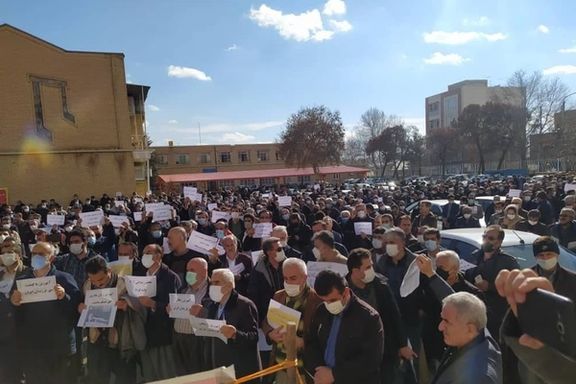
Thousands of teachers held protests in more than 50 Iranian cities to demand better salaries and the release of their colleagues detained in earlier rallies.
Some scuffles were reported during the demonstrations on Thursday that took place outside the parliament in Tehran and at the provincial offices of the education ministry in other cities across the country.
The Coordination Council of Iranian Teachers’ Trade Associations, which had organized the protests, reported that several people were arrested during the Thursday protests, including two in the southern city of Bushehr and one in the southwestern city of Ahvaz.
This is the fourth nationwide protest by teachers in the past two months, as they vow to continue protests until their demands are met.
Iranians with different professions are holding regular protest rallies or strikes to demand better work conditions and salaries.
Less than a week ago, hundreds of staff members from Iran’s judiciary department took to the streets in several cities.
Food prices have risen by more than 60 percent this year, on top of high inflation in the previous three years. Government figures released in recent days showed that prices for 83 percent of basic food staples have reached a critical level. People living on salaries have cut back on consumption of nutritious food, such as meat, fruits and dairy products.
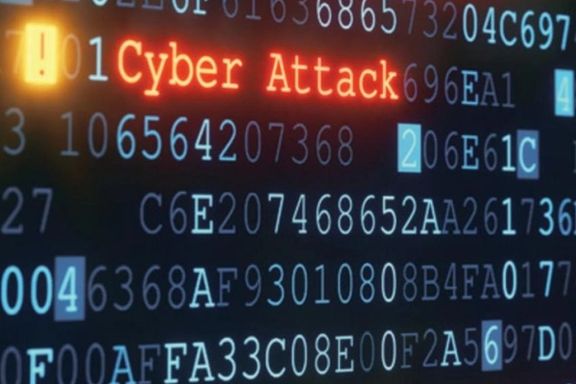
The US military has officially confirmed that Iran's intelligence ministry is connected to the cyber espionage group MuddyWater that steals data from computer networks around the world.
On Wednesday, the US Cyber Command published technical details of multiple open-source hacking tools and malicious codes reportedly used by the Iranian hackers to help organizations in the US and elsewhere can defend themselves from future intrusion attempts.
It is the first time that Washington has explicitly connected Iran's intelligence ministry to such cyber spying operations.
MuddyWater is an Iranian threat group and a “subordinate element” within Iran’s intelligence ministry “that conducts domestic surveillance to identify regime opponents. It also surveils anti-regime activists abroad through its network of agents placed in Iran’s embassies," read a notice by the Cyber National Mission Force Public Affairs.
As examples of the group’s cyberattack and information operations, CNN said MuddyWater carried out a months-long effort to breach government networks in Turkey, Jordan and Iraq that began in 2019 and continued until February 2020.
In December, Iranian state-sponsored hackers also tried to exploit a flaw in the commonly used Java-based logging tool Apache Log4j.
In late October, another Iranian hacking group called Black Shadow attacked an Israeli data and internet company, stealing a large amount of client information and demanding ransom.
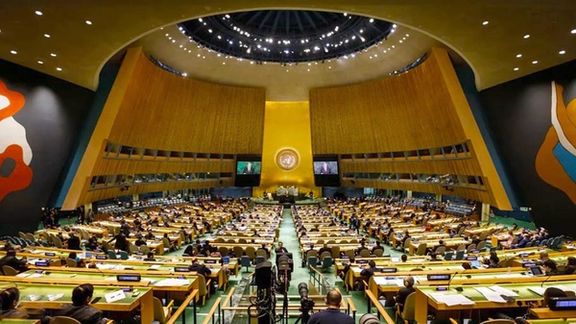
Iran says it is trying to find a secure channel so it can pay its membership fee to the United Nations to end its suspension from the international body.
Iranian Foreign Ministry Spokesman Saeed Khatibzadeh made the remarks after the Islamic Republic lost the right to vote at the UN over unpaid dues.
Khatibzadeh said Wednesday night that necessary consultations are ongoing to resolve the issue but did not elaborate on the process or the secure channel.
UN Secretary General Antonio Guterres said this week that 11 countries are behind in their payments but the right to vote is suspended for eight of them, including Iran, Sudan and Venezuela.
According to the UN charter, a member loses the right to vote when its debts equal or exceed the amount of dues it should have paid over the last two years.
Last year, Iran was suspended because it could not pay even the minimum amount because of US sanctions, but after months of negotiations Tehran was granted an exemption and was allowed to access money blocked by the US Treasury.
Tehran managed to pay $16 million of its $65 million arrears to recover the vote in June 2021, in time for the election of new members of the Security Council but this time the minimum amount Iran must pay is over $18 million.